
Job postings for data science consultants have increased an amazing 256% since 2013. Why? The need for data collection and processing is everywhere. Nearly all businesses – from large corporations to local companies – need someone to manage and interpret their data. There are also more businesses today that use artificial intelligence, and machine learning to improve or automate tasks like customer personalisation, recommendation engines, churn prediction, cost modelling, and other key business functions. There is also a growing demand for niche areas of data science such as natural language processing or computer vision to enable industries such as insurance, healthcare, legal and pharma to process huge quantities of data in text or image form.
Though larger businesses can hire entire teams of data scientists, smaller organisations may not have the funds or demand to keep a full-time data scientist, or the data science team that they do have may lack the niche skills required for an NLP project. Instead, they turn to data science consultants to fulfil their needs, which is great news if you’re looking for a new career or a side income. Since the demand for data scientists is so high, if you already have the needed skills or can acquire them, the job opportunities are nearly endless.
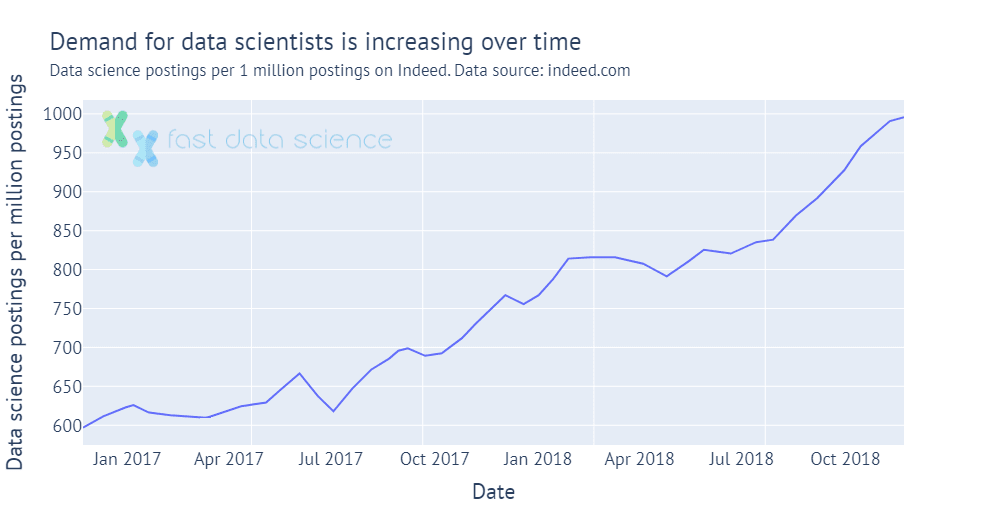
The job board Indeed tracked data science job postings over time as a proportion of total job postings from 2016 to 2018. Data source: Indeed/Hiringlab.
Data science consulting involves educating clients on the various aspects of modern technology and managing data. Most businesses are focused on their customers and the bottom line, so they may not be aware of how much data can improve and help their business. As a consultant, you will boost a client’s analytics skills and data competencies while creating a better structure for their business processes.
You will use your own experience and expertise to help clients organise their data and use it for the benefit of their businesses. You may be working for individuals, small businesses or major corporations.
Data science consulting can be broken down into the following four major categories:
Once you agree to work with a client, you will need to walk them through each of the above categories as part of the consulting journey. By using this structure and workflow, you will ensure each client understands what is needed to maintain and operate a data-based system.
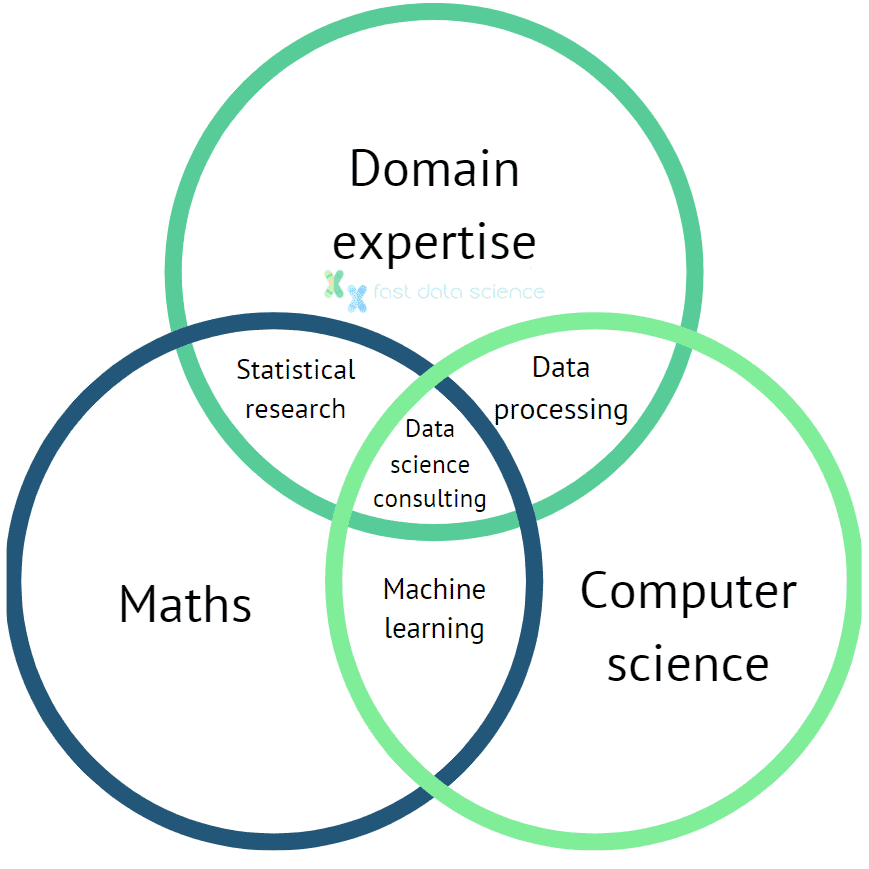
A data science consultant must be prepared to master domain expertise (a typical set of clients could range from transport to retail to pharma and back again), a good command of maths, and be competent in software design and elements of computer science.
To enter the highly competitive field of /data science consulting, you need both business sense and technical knowledge. The required skills include:
Most data scientists have a degree in an information technology field. For example: operations research, data science, applied statistics, or general computer science. You can also earn a Bachelor’s degree in mathematics, or social or physical sciences, and then specialise in data within that field. As an example, a biotechnologist may specialise in analysing data from DNA sequencing. Many data scientists also have a Master’s or PhD.
If you don’t have a higher degree, don’t worry. You can still break into the field with entry-level positions and build your skills as you work. Because data science is in demand, particularly machine learning and AI, there is an abundance of online courses to get you started. You’ll need to learn how to use data science tools like Hadoop or Adobe Spark, and you’ll also need to be familiar with at least one of the following programming languages:
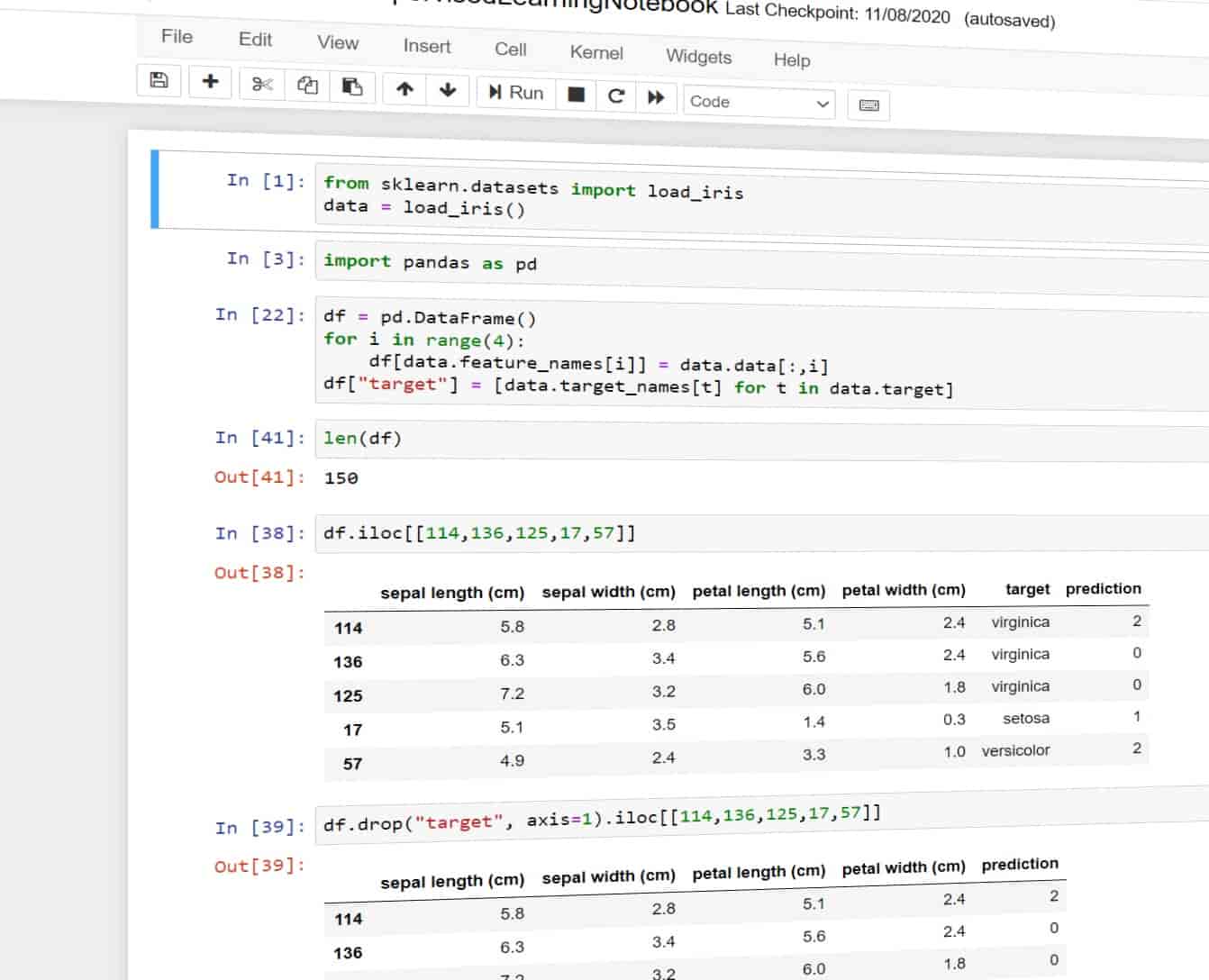
Jupyter Notebook is a common tool used within data analytics consultanting services. It allows you to run code in Python, R, or other languages, and view the results immediately below on the same screen, display code and graphs to the client, and even make presentations directly from code.
The programming languages that are generally used the most are Python and R, but you should have a solid working knowledge of the others. You’ll also need to learn how to use data visualisation tools because they are essential when extracting meaningful information and presenting it to your clients.
Though data science consulting involves understanding and utilising data, it is essentially a business. When freelancing or starting your own data science consulting business, you’ll need to know the fundamentals of managing your time, marketing, and money. Consulting is a competitive market and clients have plenty of options. To be successful, you need a strong business model and you need to differentiate yourself from the crowd. If you’re new to the game, there are free and paid online courses that will walk you through the steps of setting up your own business or freelancing career so you don’t find yourself lost and struggling later.
Most clients will expect you to have a portfolio with several years of experience working in the industry. Clients need to feel confident in your ability to handle data since you’ll be responsible for shaping their business and operations. Data consulting is a long game, and it requires consistency if you want to land major clients. If you’re just starting out, you can take on a few pro bono jobs to start your portfolio. You can also find free data sets to work on and add to your data consulting portfolio.
We’ll talk more about gaining experience below.
We live in the age of computers, so having an online website and portfolio is no longer an option. It’s a requirement. Clients want to see your work and the results you can provide. Even a one-page website is better than nothing. Wix and WordPress are popular choices, but your options for hosting are practically limitless. Pick a platform and make sure your website or portfolio includes the services you offer, contact information, your previous clients, and your best projects.
I recommend to keep a blog of successful projects. For example, a few years ago I worked on a project around predicting customer spend, and blogged about it. I didn’t include code samples, but just described how I solved the problem in layman’s terms. Now potential clients with a similar problem are likely to land on my blog article.
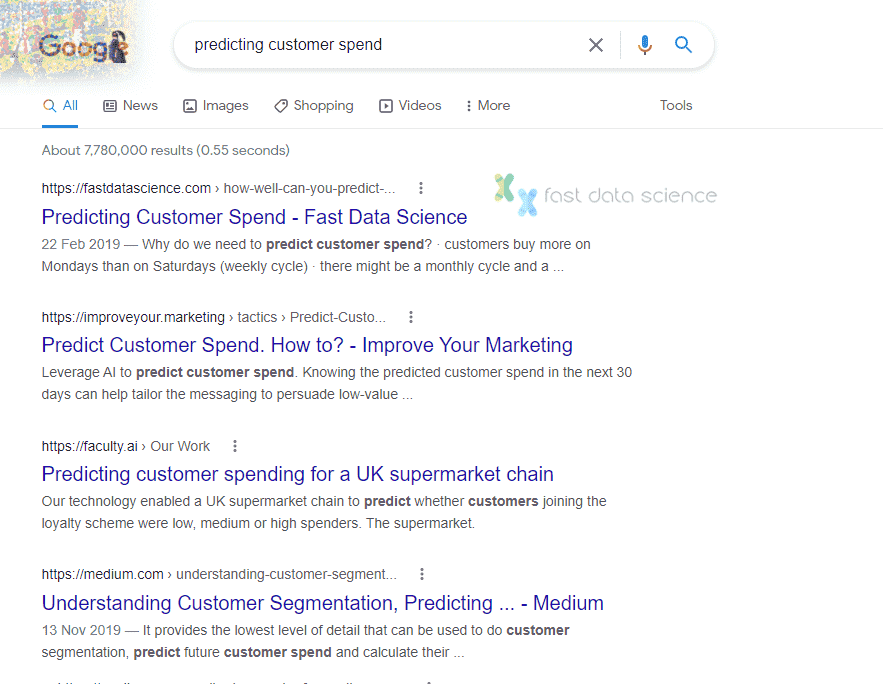
Blog articles on past projects are a sure-fire way to get similar business as a data science consultant. The more specific your topic, the more likely you are to be on Google’s front page - or even the top search result!
Data science is a rapidly changing field, and the top consultants know to stay ahead of recent developments. You must be able to explain, quantify and support businesses so they have effective, compliant operations. For example, regulations like the GDPR dictate how a company must handle customer data. Businesses that have been around a while might need to restructure their protocols so they maintain privacy and security. If a business fails to remain compliant, it can be costly.
As a consultant, you must know all the current regulations so you can best serve your clients.
There are many paths to becoming a data science consultant. Some people get degrees and jump right in with freelancing. Others may lack a degree, so they teach themselves and begin by working with smaller organisations. You can also choose between doing generalised consulting or specialising in a specific area.
Though not mandatory, gaining experience in a data science consulting firm will give you a strong foundation, look great on your CV or résumé, and help you transition to freelance in the future.
Here are some of the traditional routes for breaking into the industry:
MBB stands for McKinsey, BCG, and Bain. Collectively, they’re known as “the big three.” These consulting agencies are the three most prestigious in the world. World-class data scientists work for them, and manage several big-time brands.
Examples of big data providers are Amazon, Cloudera, Palantir Technologies, Microsoft, VMware and, of course, Google. These companies have the advantage of having huge datasets to play with.
These companies are major players and they’ve also been around the longest: IBM, Oracle, Accenture Analytics, and more.
Regardless of what path you take and who you work for, almost all opportunities will give you experience working closely with digital content and data, which is what you need.
When working for a major company that has a long list of contacts, finding clients won’t be hard. But if you’re freelancing or working in a small consulting business, the main challenge will be finding clients. As mentioned, the field is highly competitive and clients want to work with a firm or individual with a strong history, great reputation, and a portfolio of successes.
One way to find clients is to hire experienced professionals who come with their own list. If you’re working solo, then you’ll need to focus on your reputation and marketing. You can attend live events and conferences, participate in competitions, compete for contracts, and learn how to advertise and promote your services to the right audience. Networking is key. Many data science consultants use LinkedIn because it’s home to numerous data science groups.
Online freelancing platforms are also a great option. Clients are already there searching for services like the ones you offer. Just be aware that these platforms may take a percentage of your earnings.
My personal recommendation is to invest in a professional quality website and do this early. Reviews are also key. For example, I make sure Fast Data Science has an active profile with client reviews on Google Maps / Google My Business, among other platforms.
If you’re considering a career in data science, now is the time to act. Once you establish yourself in the industry, clients will start coming to you as you work on bigger and bigger projects. Success in this field is a long, hard road, but something you can achieve with dedication. The more you learn, the closer you’ll get to becoming a data science consulting expert.
Unleash the potential of your NLP projects with the right talent. Post your job with us and attract candidates who are as passionate about natural language processing.
Hire NLP Experts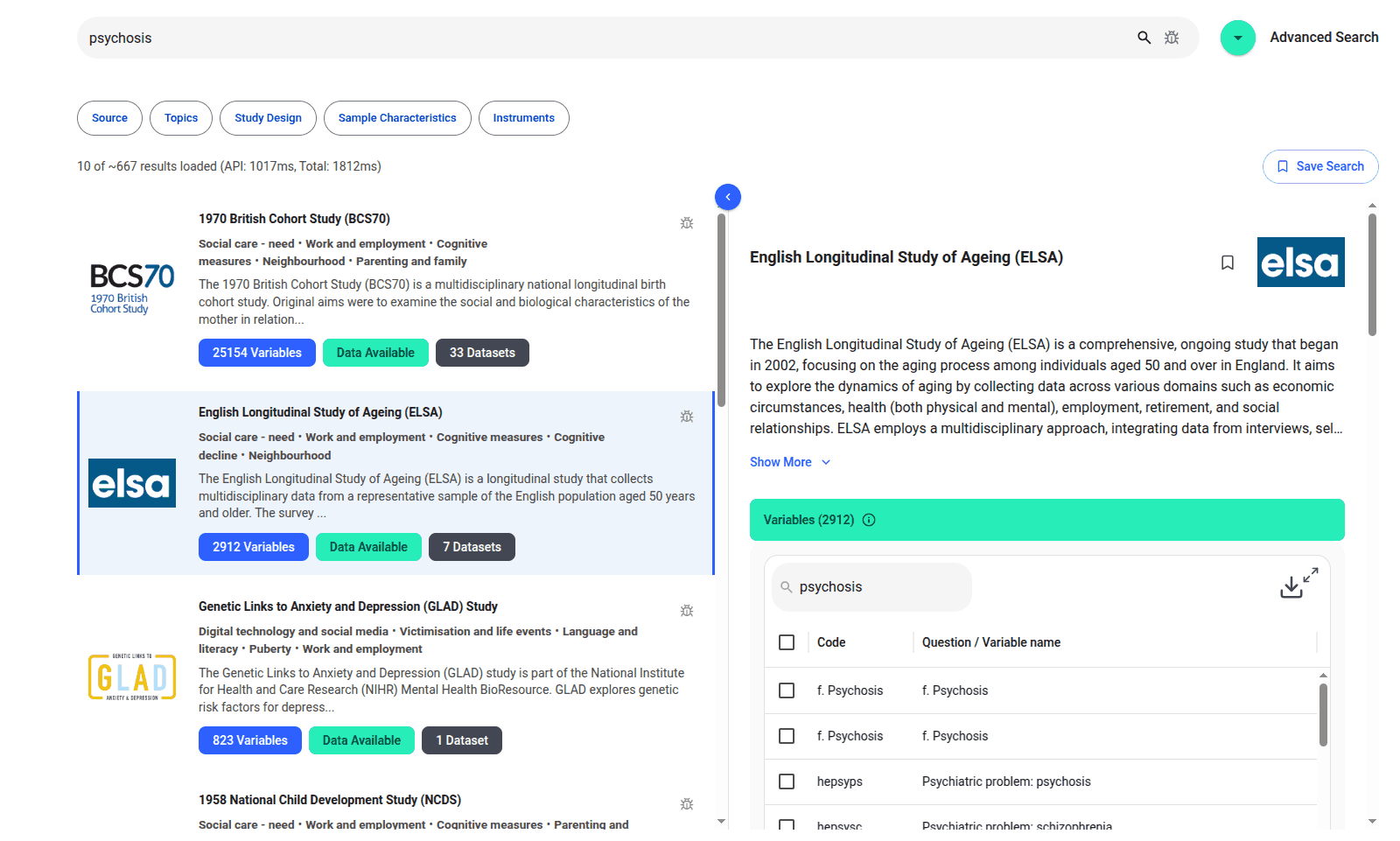
We are excited to introduce the new Harmony Meta platform, which we have developed over the past year. Harmony Meta connects many of the existing study catalogues and registers.

Guest post by Jay Dugad Artificial intelligence has become one of the most talked-about forces shaping modern healthcare. Machines detecting disease, systems predicting patient deterioration, and algorithms recommending personalised treatments all once sounded like science fiction but now sit inside hospitals, research labs, and GP practices across the world.

If you are developing an application that needs to interpret free-text medical notes, you might be interested in getting the best possible performance by using OpenAI, Gemini, Claude, or another large language model. But to do that, you would need to send sensitive data, such as personal healthcare data, into the third party LLM. Is this allowed?
What we can do for you